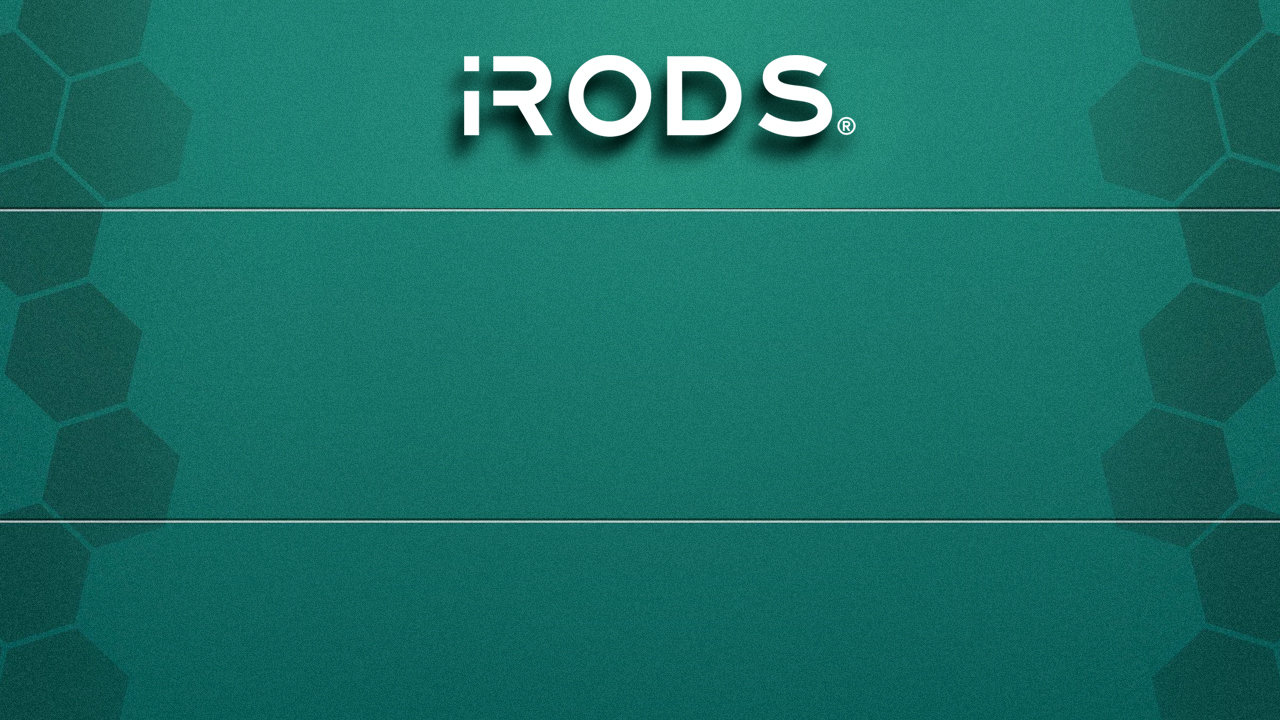Kory Draughn
Chief Technologist
iRODS Consortium

November 12-17, 2023
Supercomputing 2023
Denver, CO
iRODS HTTP API:
Presenting iRODS as HTTP
What is the iRODS HTTP API?
An experimental redesign of the iRODS C++ REST API.
Goals of the project ...
- Present a cohesive representation of the iRODS API over the HTTP protocol, effectively simplifying development of client-side iRODS applications for new developers
- Maintain performance close to the iCommands
- Remove behavioral differences between client-side iRODS libraries by building new libraries on top of the HTTP API
- C, C++, Java, Python, etc - all languages produce identical behavior and results
- Absorbed by the iRODS server if adoption is significant

Why is this necessary?
The iRODS C++ REST API proves that presenting iRODS as HTTP is possible, however, usage of the project over time has uncovered some challenges.
Challenges ...
- Too many open ports raise security concerns
- Stability issues (e.g. crashing endpoints)
- Separation of endpoints increases complexity due to multiple layers
- e.g. Interns found it difficult to understand how things are composed
- Pistache HTTP library lacks completeness/maturity/adoption
- Names of existing endpoints are fairly general which leads to difficulty in naming of new endpoints
The iRODS HTTP API is aimed at resolving these issues by taking a different approach based on what we've learned from the community and the iRODS S3 API.
To view the original document which kick-started this effort, click here.

Design - Early Decisions
- Single binary exposing one port
- Boost.Beast
- A C++ header-only library providing networking facilities for building high performance libraries and applications which need support for HTTP/1 and Websockets
- First used by the iRODS S3 API
- Fixed set of URLs
- Easy for users and developers to remember
- Renamed from REST to HTTP
- The rules of REST do not map well to the iRODS API
- iRODS is stateful
- Focus on designing the best API we can

Design - API URLs
Named based on concepts and entities defined in iRODS.

Operations are specified via parameters. This decision keeps URLs simple (i.e. no nesting required) and allows new/existing developers to guess which URL exposes the behavior they are interested in.
For example, if you want to modify a user, look at /users-groups. Or, perhaps you need to write data to a data object, then you'd use /data-objects.
| /authenticate | /resources |
| /collections | /rules |
| /data-objects | /tickets |
| /info | /users-groups |
| /query | /zones |
Design - API Parameters
All URLs, except /authenticate and /info, accept an op parameter.
- Mapped to a function responsible for executing the requested operation
- Shares common values where possible
- e.g. stat, list, create, remove, etc
Common parameters used through out the API ...
- lpath
- replica-number
- src-resource
- dst-resource
- offset
- count
Parameter names are not final and may change in the future.

Configuration - Top Level

{
// Defines HTTP options that affect how the
// client-facing component of the server behaves.
"http_server": {
// ...
},
// Defines iRODS connection information.
"irods_client": {
// ...
}
}Defines two sections to help administrators understand the options and how they relate to each other.
Modeled after NFSRODS.
Parallel Writes
Fully supported through the use of a Parallel Write Handle.
This ultimately means, the iRODS HTTP API server maintains state on behalf of the client.
Performing a Parallel Write requires the use of two operations ...
- parallel_write_init
- Instructs the server to allocate memory for managing the state of the upload
- parallel_write_shutdown
- Instructs the server to deallocate memory obtained via a call to parallel_write_init
Large files must use multipart/form-data as the content type. Failing to honor this rule will result in an error or corrupt data.

Examples - Stat'ing a collection

base_url="http://localhost:9000/irods-http-api/0.1.0"
bearer_token=$(curl -sX POST --user 'rods:rods' "$base_url/authenticate")
curl -sG -H "Authorization: Bearer $bearer_token" \
"$base_url/collections" \
--data-urlencode 'op=stat' \
--data-urlencode 'lpath=/tempZone/home/rods' \
| jq{
"inheritance_enabled": false,
"irods_response": {
"status_code": 0
},
"modified_at": 1686499669,
"permissions": [
{
"name": "rods",
"perm": "own",
"type": "rodsadmin",
"zone": "tempZone"
}
],
"registered": true,
"type": "collection"
}Examples - Listing available Rule Engine Plugins

base_url="http://localhost:9000/irods-http-api/0.1.0"
bearer_token=$(curl -sX POST --user 'rods:rods' "$base_url/authenticate")
curl -sG -H "Authorization: Bearer $bearer_token" \
"$base_url/rules" \
--data-urlencode 'op=list_rule_engines' \
| jq{
"irods_response": {
"status_code": 0
},
"rule_engine_plugin_instances": [
"irods_rule_engine_plugin-irods_rule_language-instance",
"irods_rule_engine_plugin-cpp_default_policy-instance"
]
}Future Work
- Document the API in terms of OpenAPI
- Add support for remaining API endpoints provided by iRODS
- Bulk/Batch operations
- Archive file operations
- Validate the configuration on server startup
- Harden the implementation
- Improve performance

v0.1.0 is available today!
https://irods.org/2023/11/initial-release-of-the-irods-http-api
Help us make this project better for everyone.

Thank you!
Questions?

SC23 - iRODS HTTP API: Presenting iRODS as HTTP (8 minutes)
By korydraughn
SC23 - iRODS HTTP API: Presenting iRODS as HTTP (8 minutes)
- 101



